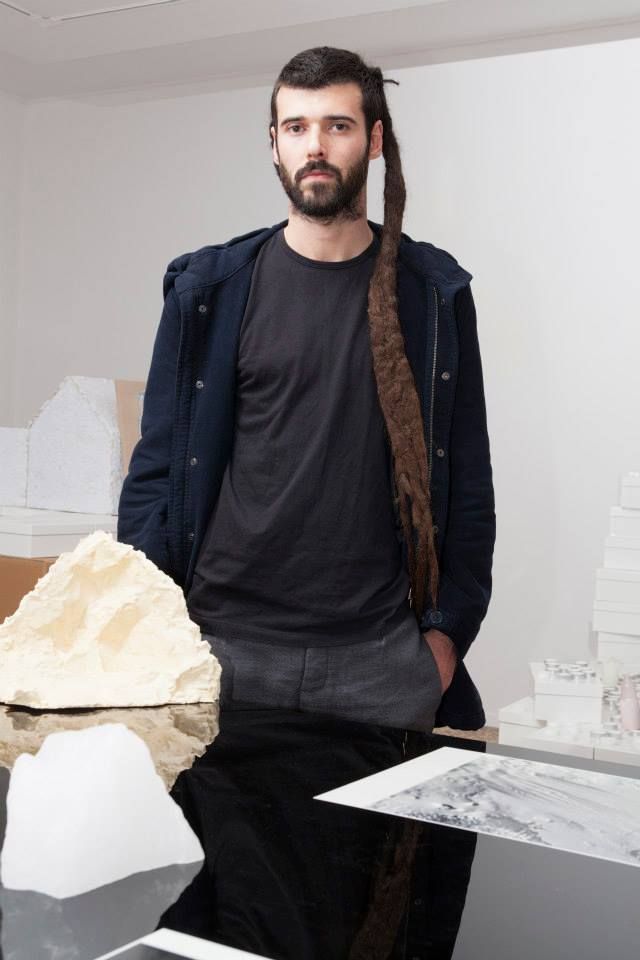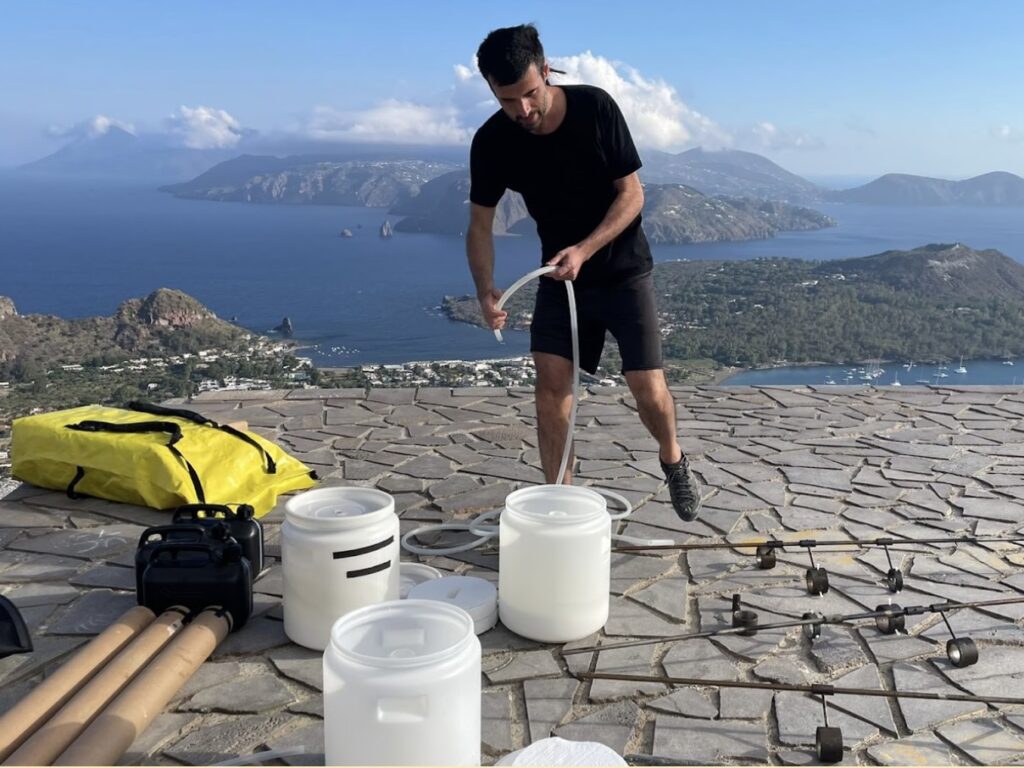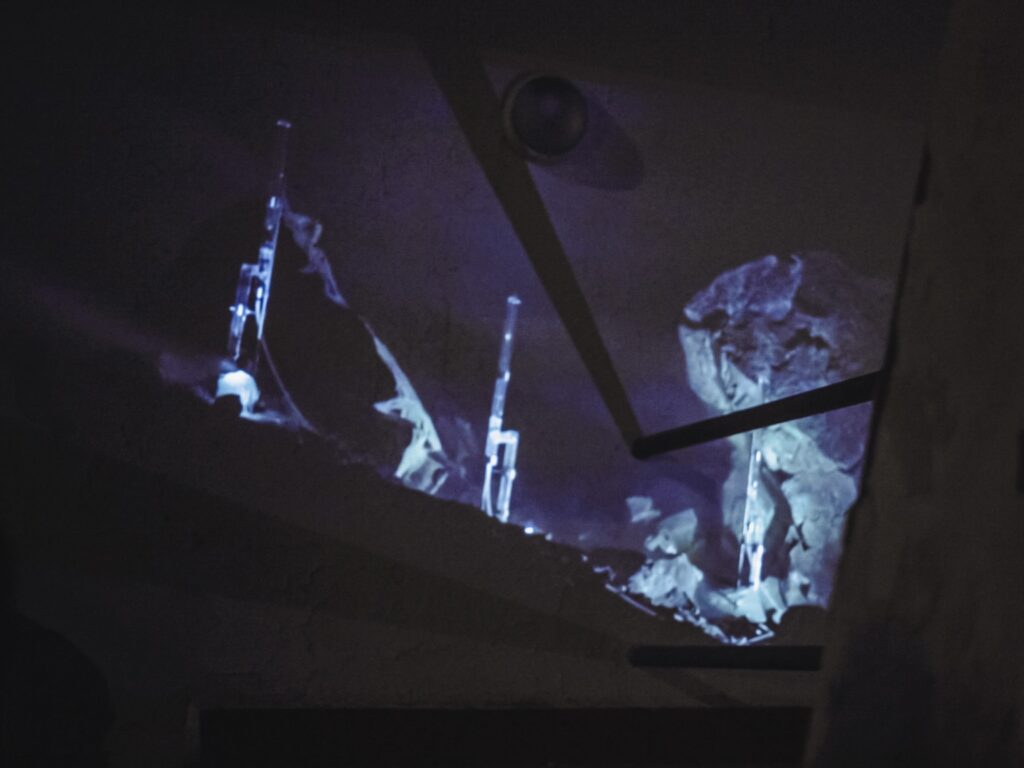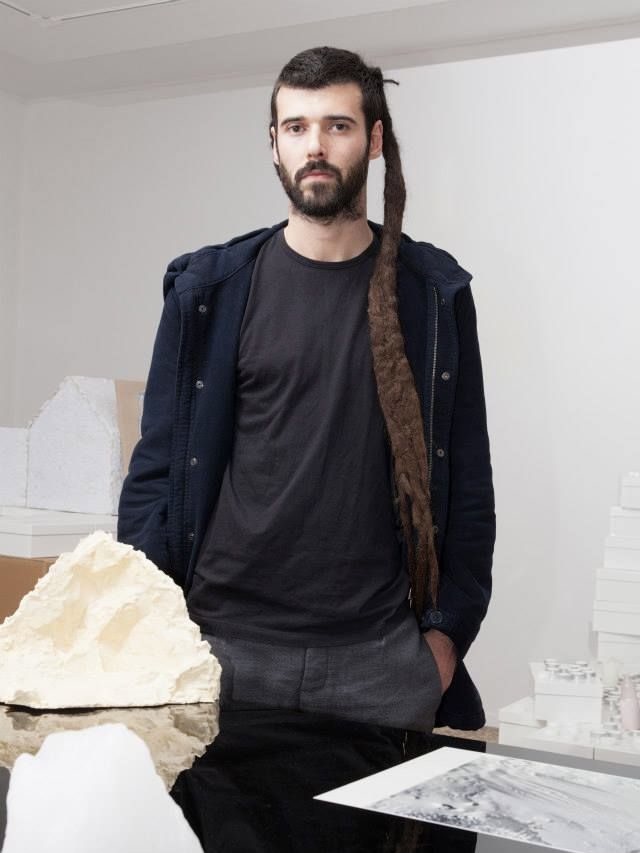FABRIZIO PERGHEM
(Rovereto, 1981). Vive e lavora a Milano
His works are ‘document-devices’, in the form of audio tracks, Polaroids and sculptures, aimed at triggering the visualisation of situations and materials that are no longer present or invisible. dispositivi-documento, sotto forma di tracce audio, polaroid e sculture, volti a innescare la visualizzazione di situazioni e materiali non più presenti o invisibili
Initially a visual artist, Patil later became interested in the intersection of performance art, kinetic art, and video installation. After discovering his affinity for performance art, he grappled to understand his father’s work as a theater activist. He encountered an old dictaphone tape recorder, a walkman, and cassettes filled with sounds and immigrant dialects that his father recorded for his avant-garde scripts on the dilemma of living in the city as a migrant. He also found songs handwritten by his poet grandfather. The songs are rooted in a protest tradition called powada, that dates back to the seventeenth century. Much like rappers, the interpreters furiously spit out words, often criticizing the caste system.
For his contribution to documenta fifteen, Patil invites collaboration across time. Young Powada writers and musicians, the Yalgaar Sanskrutik Manch, weave their lyrics with his grandfather’s. “It’s a way to think the now, combining what’s harsh and polite, sweet and silent, pitching a criticism of land politics and social separation,” Patil says. He draws the visitors into journeys within the city from his childhood. His father’s friend, Anil Tuebhekar, moved on skates, a broom in hand and a radio at his waist, sweeping the street, every day. “He cleaned the city, but knew he wasn’t welcome into the bus or in the hotel for a drink of water. Shutting the world out with music was his individual protest.”
Patil’s work has been shown at Yokohama Triennale (2020); Goethe-Institut/Max Mueller Bhavan, Mumbai and New Delhi (2019); The Showroom, London (2018); Tensta konsthall, Stockholm (2017); Centre Pompidou, Paris (2017); Pune Biennale Habit-Co-Habit (2017); New Galerie, Paris (2016); Dakar Biennale (2016); Myymälä2, Helsinki (2015); Japan Foundation, Delhi (2015); and Stedelijk Museum, Amsterdam (2015).


LUOGHI D’INTERVENTO
Cratere di Vulcano – Vulcano
Spiaggia delle Sabbie Nere – Vulcano

